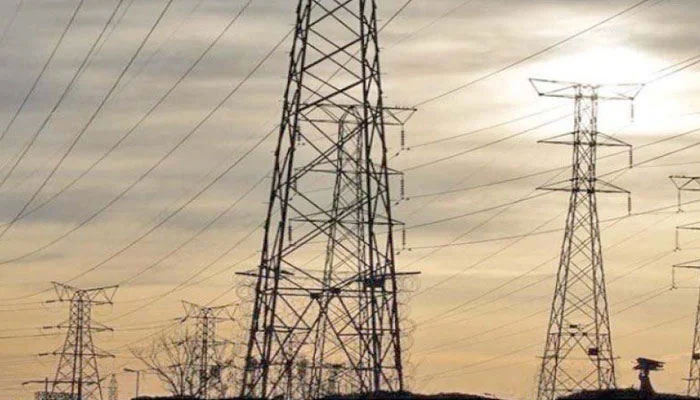Government starts working to reduce power tariff
Authorities would also restructure the existing tariff by increasing the fixed charges and reducing the variable changes
ISLAMABAD: The present government is working on reducing overall electricity tariffs by replacing imported coal-based power plants with local Thar coal.
“In addition, the government is geared to make its transmission system strong and sustainable enough to evaluate the cheaper electricity based on Thar coal up to load center Punjab. The authorities would also restructure the existing tariff by increasing the fixed charges and reducing the variable changes. The government has also geared up its efforts for debt restructuring in the power sector will also provide solace in the power tariff,” a senior official of the power division told The News.
“The conversion of imported coal-based power generation of 4000 MW onto local Thar coal would help tumble the power tariff by Rs8-9 per unit. To this effect, the authorities have started working on this vital issue. The conversion of the imported coal-based power plant would take 3-4 years. The conversion of the said plants would also help reduce the import bill of $4-5 billion a year.”
The NTDC’s transmission system would also be upgraded in such a way to easily evacuate the cheaper electricity based on Thar coal from the South to the North of the country as in the winter season 2023-24, the transmission line could not transmit the cheaper electricity which is why in the north costly power plants’ electricity was sued in the system which to which the overall tariff in the head of the monthly fuel adjustment increased manifold.
The government has also stepped up endeavors for debt restructuring to sizably slice down the capacity payments that have swelled to Rs2000 billion. When the plants of 1200 MW from 2015 to 2018 were installed, the value of Pak Rupee was at Rs100, which has now increased by Rs180 because of the appreciation of the US dollar. If the value of the US dollar decreases or the Pak rupee appreciates, the volume of capacity payments can be reduced and to this effect, the government has started working on a multi-pronged strategy.
“We have also embarked upon implementing cutthroat reforms in the power sector by handing over Discos to the private sector on long-term concessional agreements based on competitive bids vying for the reduction of losses and investment in Discos business.”
The government, the official said, would not meddle in Disco’s affairs and have no role in transferring and posting officials in the Discos. Moreover, Discos have their new BoD (board of directors) based on highly efficient and professional people. All the Discos will be depoliticized, and no politician will be allowed to interfere in Discos issues. “The government is also going to allow the private sector to generate electricity and sell it to the private sector players through the transmission and distribution system of the government. Against the use of a transmission and distribution system, the government-owned NTDC and Discos will charge the transportation and distribution tariff. The official said that per year electricity theft and losses incur an amount cost of Rs592 billion though the caretaker regime has recovered a net Rs57 billion from September 2023 to March and the sitting regime has decided to expedite the anti-electricity theft drive across the country.”
-
 AI Innovation Could Make Trade Secrets More Valuable Than Patents, Says Billionaire Investor
AI Innovation Could Make Trade Secrets More Valuable Than Patents, Says Billionaire Investor -
 King Charles Heckling: Calls For 10 BAFTAs And A Knighthood For Sign Language Interpreter
King Charles Heckling: Calls For 10 BAFTAs And A Knighthood For Sign Language Interpreter -
 Kim Kardashian Leaves Meghan Markle 'upset' With Latest 'cheap Shot'
Kim Kardashian Leaves Meghan Markle 'upset' With Latest 'cheap Shot' -
 Royal Expert On Andrew, Sarah Ferguson’s ‘entitled’ Behaviour Since Marriage
Royal Expert On Andrew, Sarah Ferguson’s ‘entitled’ Behaviour Since Marriage -
 Instagram And YouTube Accused Of Engineering Addiction In Children’s Brains
Instagram And YouTube Accused Of Engineering Addiction In Children’s Brains -
 Trump Reached Out To Police Chief Investigating Epstein In 2006, Records Show
Trump Reached Out To Police Chief Investigating Epstein In 2006, Records Show -
 Keke Palmer Praises Actor Who Inspired 'The Burbs' Role
Keke Palmer Praises Actor Who Inspired 'The Burbs' Role -
 Humans May Have 33 Senses, Not 5: New Study Challenges Long-held Science
Humans May Have 33 Senses, Not 5: New Study Challenges Long-held Science -
 Kim Kardashian Prepared To Have Child With Lewis Hamilton: 'Baby Using A Surrogate'
Kim Kardashian Prepared To Have Child With Lewis Hamilton: 'Baby Using A Surrogate' -
 Internet Splits Over New York's Toilet Data Amid Bad Bunny's Super Bowl Show
Internet Splits Over New York's Toilet Data Amid Bad Bunny's Super Bowl Show -
 Prince William Inspects Saudi Arabia's Efforts To Promote Football In Young Girls
Prince William Inspects Saudi Arabia's Efforts To Promote Football In Young Girls -
 Northern Lights: Calm Conditions Persist Amid Low Space Weather Activity
Northern Lights: Calm Conditions Persist Amid Low Space Weather Activity -
 'Look What Andrew Has Done': Meghan Markle Defended On Jeremy Vine Show
'Look What Andrew Has Done': Meghan Markle Defended On Jeremy Vine Show -
 Apple, Google Agree To Make 'app Store' Changes Over UK Regulator Concerns
Apple, Google Agree To Make 'app Store' Changes Over UK Regulator Concerns -
 Autodesk Files Lawsuit Against Google Over AI Video Tool Trademark Dispute
Autodesk Files Lawsuit Against Google Over AI Video Tool Trademark Dispute -
 San Francisco 49ers Player Shot Near Post-Super Bowl Party
San Francisco 49ers Player Shot Near Post-Super Bowl Party




